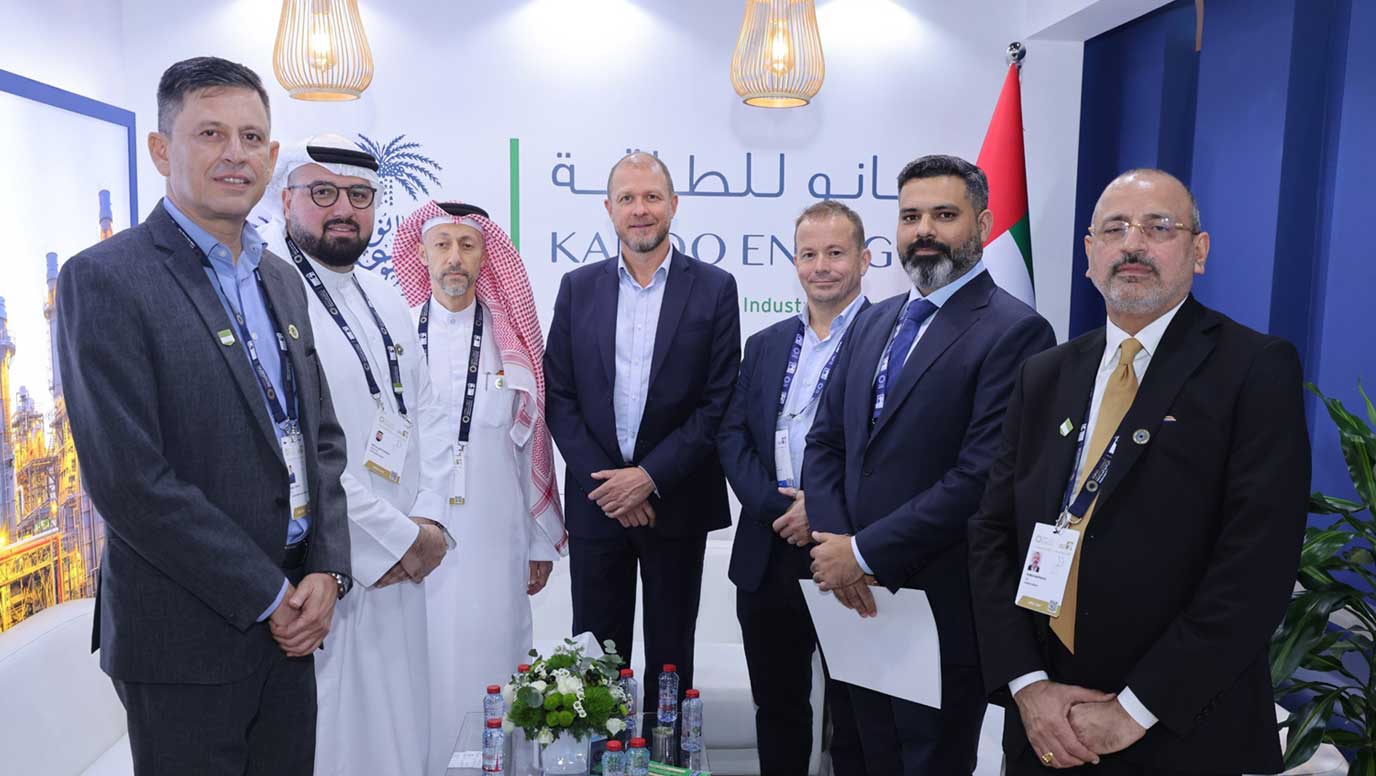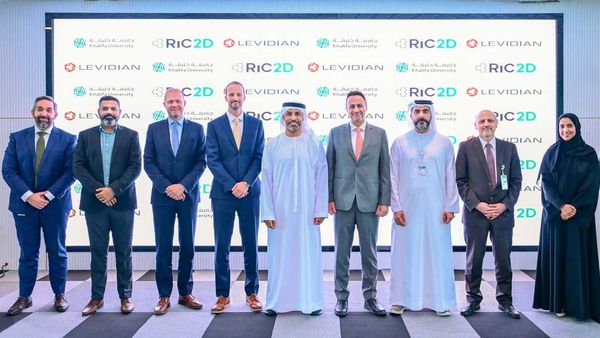Levidian twice strikes oil in Middle East with sustainability tech

It has formed a new partnership to drive forward decarbonisation projects across the Middle East with Kanoo Energy – part of Yusuf bin Ahmed Kanoo Company in the Kingdom of Saudi Arabia and The Kanoo Group in the UAE.
It is also collaborating with Khalifa University’s RIC2D on UAE’s Decarbonisation and Produce High-Quality Graphene programme.
The Kanoo Energy alliance is especially eye-catching: the companies will jointly explore and execute projects in the UAE, Saudi Arabia, Bahrain and Oman. Kanoo will also work as Levidian’s dedicated Engineering, Procurement and Construction partner within the region.
Levidian’s patented LOOP system has been designed to capture the carbon from methane before it’s burned, providing heavy emitters and hard-to-abate industries with a route to both decarbonise gas and open up new revenue streams from the production of clean hydrogen and high-quality graphene.
The graphene produced can be used to both drive process efficiencies and enhance the intrinsic characteristics of products in major global industries as far ranging as steel, batteries and petrochemicals.
The hydrogen can be produced at varying levels of purity to be injected into the gas grid, used as a lower carbon fuel for on-site energy generation or as pure hydrogen suitable for hydrogen fuel cell EVs.
Mr. Ali Abdulla Kanoo, President of Kanoo Industrial & Energy, said: “Our latest strategic collaboration with Levidian reflects our commitment to our region’s goal of decarbonisation and net zero. The innovative technology of Levidian and the expertise of Kanoo Energy in the region will be a game changer in steering the region towards a green future.”
Levidian and Kanoo Energy UAE are already working with ADNOC to deploy a LOOP at its Habshan Gas Processing Plant in Abu Dhabi. Levidian has also signed an agreement with Tadweer to commission a first of its kind pilot project at a landfill site in Abu Dhabi by the end of 2024.
Colin Elcoate, Managing Director for Levidian in the Middle East and North Africa, said: “With methane abatement once again set to be high on the agenda at this year’s COP summit in Azerbaijan, we're delighted to be joining forces with Kanoo to help accelerate and deliver critical decarbonisation projects in the Middle East.
“With Levidian’s LOOP technology, we’re turning harmful methane emissions into a source of high value hydrogen and graphene, giving heavy emitters and hard to abate sectors a solid business case to deliver projects that might not otherwise happen. The technology is proven, scalable and already making its mark - we can't wait to do more.”
In the second Middle East deal, Khalifa University of Science and Technology’s Research & Innovation Center for Graphene and 2D Materials (RIC2D), and Levidian are partnering to help further the UAE's decarbonisation efforts by exploring carbon capture from gas flaring and future applications for graphene.
An agreement was signed at Khalifa University Main Campus in Abu Dhabi by His Excellency Professor Ebrahim Al Hajri, President, Khalifa University, and by John Hartley, Chief Executive Officer, Levidian. Professor Hassan Arafat, Senior Director, RIC2D, senior officials, and representatives from Khalifa University and Levidian were present at the ceremony.

The partners will explore the effectiveness of Levidian’s patented LOOP technology in capturing carbon from different gas types, including flare gas from oil and gas facilities.
Khalifa University's RIC2D will then spearhead research into the applications of graphene produced as part of the process, which also creates clean hydrogen.
Professor Hassan Arafat, Senior Director, RIC2D at Khalifa University, said: “This collaboration will enable the RIC2D team to continue to spearhead research into the applications of graphene produced as part of the process, also creating clean hydrogen. By driving scientific development, this collaboration has all the hallmarks of successfully driving innovation in graphene and 2D materials as well as facilitating commercialisation.”
John Hartley added: “The UAE has an incredible opportunity not only to drive down emissions from its oil and gas operations but, in doing so, create two high value products that are going to change the face of the future energy landscape – hydrogen as a critical future fuel, and graphene as a powerful additive to batteries for EVs and to store excess power produced by wind and solar projects.
“The possibilities are genuinely endless and we are delighted to be working with Khalifa University as the region’s leading academic institution as we continue to drive forward our technology and get more LOOPs out into the field.”
Khalifa University’s RIC2D has entered into multiple partnerships to further drive innovation identifying opportunities in advanced materials innovation. It also seeks to combine expertise, resources, and research capabilities towards accelerating the development and commercialisation of graphene-based technologies. It collaborates with stakeholders in organising symposiums to explore the transformative potential of 2D materials.
Levidian announced earlier this year plans to invest around $100 million in the UAE as part of the establishment of a new delivery centre that will serve as a showcase and central hub for the business in the Middle East.
The centre is expected to create around 100 highly skilled professional and manufacturing roles as well as a further 150 indirect jobs.
Levidian provides a unique service that helps hard-to-abate sectors to unlock critical decarbonisation projects by capturing the carbon from methane gas and turning it into high value graphene and hydrogen.
The graphene produced is ‘net zero’, with the potential to be carbon negative depending on the make-up of the local grid and can be used to both drive process efficiencies and enhance the intrinsic characteristics of products in major global industries as far ranging as steel, batteries and petrochemicals.
The hydrogen can be produced at varying levels of purity to be injected into the gas grid, used as a lower carbon fuel for on-site energy generation or as pure hydrogen suitable for hydrogen fuel cell EVs.
Levidian was named Sustainability Champion at September’s Business Weekly Awards.

